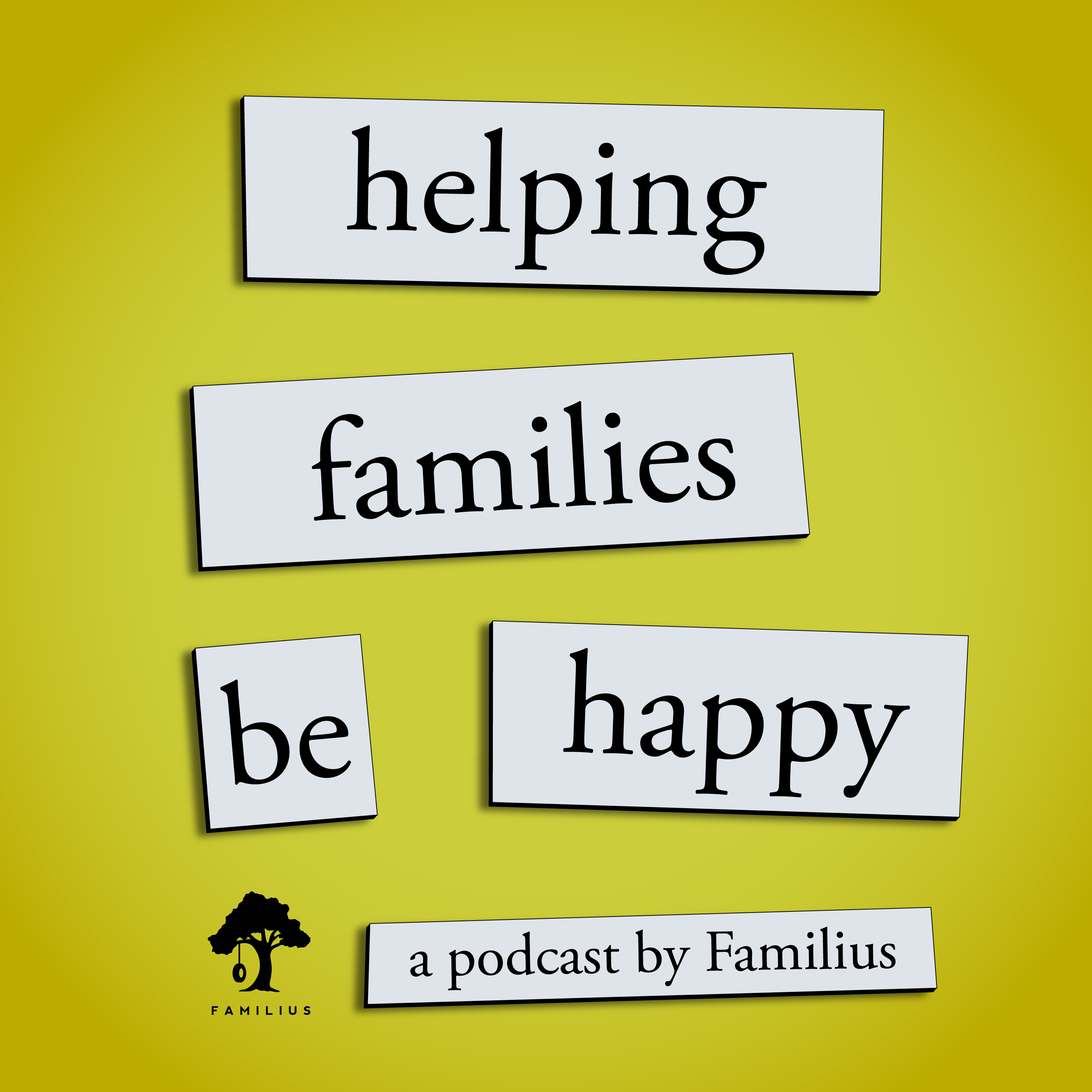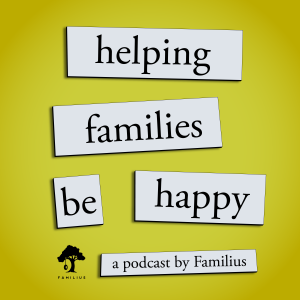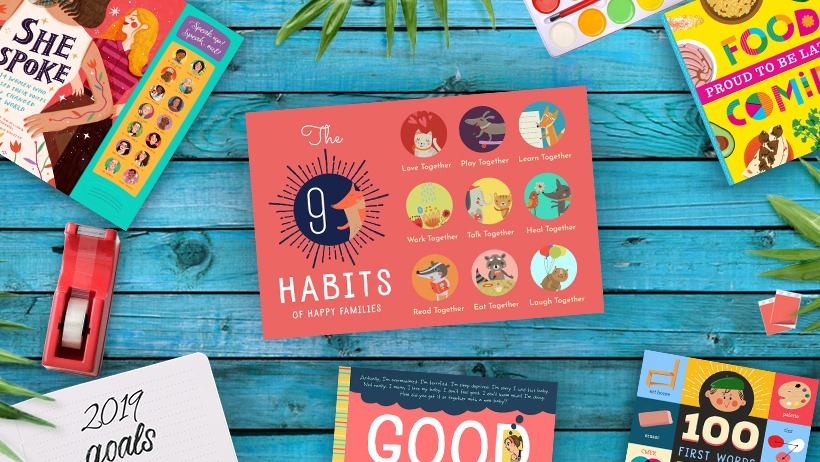
14.4K
Downloads
215
Episodes
With help from guest authors, experts, and community and business leaders, the Familius Helping Families Be Happy podcast explores topics and issues that connect families to the nine habits of a happy family: love, play, learn, work, talk, heal, read, eat, and laugh together.
Episodes

Wednesday Jul 03, 2024
The Freedom of Play: A Guide to Unstructured Summers with Pam Lobley
Wednesday Jul 03, 2024
Wednesday Jul 03, 2024
In this engaging episode of Helping Families Be Happy, host Adina Oberman taps into the wisdom of writer and memoirist Pam Lobley to tackle the challenges of modern family schedules and the lost art of free play. Pam shares insights from her own experiences of letting her children enjoy a summer free of scheduled activities, diving into the benefits and hurdles of unstructured playtime. The episode serves as a reminder of the value of simplicity in our fast-paced world, emphasizing the importance of fostering creativity and imagination in children through the power of play.
Episode Highlights:
00:09: Adina Oberman warmly introduces the podcast, sharing her multifaceted role as a mom, former preschool teacher, and a member of the Famis marketing team, as well as her enthusiasm for children's literature through her project, big books for little hands. She welcomes Pam Lobley, a renowned writer recognized for her columns in major publications and her memoir focused on the joys of unstructured play for over-scheduled children.
01:40: Pam expresses her excitement about joining the podcast and delves into the backstory of her book "Why Can't We Just Play?" She illuminates the overwhelming nature of modern parenting, where the pressure to enroll children in numerous activities can overshadow the simple pleasures of childhood.
02:49: Through a heartfelt recount of a night that changed her perspective, Pam describes her realization that her children craved unstructured play. This epiphany led to a transformative summer where her family embraced the freedom of play without the confines of a packed schedule, exploring the resulting benefits and challenges.
04:11: The conversation shifts to the critical difference between structured and unstructured play, with Adina and Pam discussing the invaluable role of free time in fostering children's creativity, decision-making, and self-exploration, contrasting this with the often achievement-focused nature of scheduled activities.
05:34: Pam offers practical advice for parents struggling to incorporate free play into their daily routines. She emphasizes the importance of setting clear boundaries around screen time and creating opportunities for children to engage in self-directed play, advocating for parental involvement without directing the play itself.
07:32: Highlighting the educational aspect of play, Pam underscores how unstructured playtime can teach children crucial life skills such as empathy, self-awareness, and moral judgment through natural interactions rather than adult instruction.
09:36: Reflecting on the modern parenting dilemma of balancing technology use with active play, Adina discusses the common scenario of parents being physically present but mentally distracted by devices. Pam stresses the importance of being fully engaged and setting an example of prioritizing real-world interactions over screen time.
11:31: Pam shares strategies for managing screen time, including establishing specific rules around its use based on weather and time of day. She advocates for consistency in enforcing these rules and believes that, over time, children come to appreciate and prefer the freedom and joy that comes with less screen dependence.
14:13: Offering further advice, Pam highlights the importance of community and spousal support in facilitating unstructured play, suggesting that parents connect with like-minded families and work together with their partners to create a supportive environment for their children's free play.
19:28: As the episode concludes, Pam provides listeners with ways to connect with her online and reiterates the significant value of embracing the freedom of summer to foster happy, well-rounded children.
Key Takeaways:
- Structured activities, while beneficial, need to be balanced with ample time for unstructured play, which is critical for children's creativity, emotional growth, and physical well-being.
Show Notes By Barevalue
- Parents play a crucial role in setting the stage for free play by minimizing screen time, establishing clear routines, and actively encouraging children to engage in self-directed activities.
- Building a support system, whether through family or community connections, is essential in promoting and sustaining the practice of free play in a technology-driven world.
Tweetable Quotes:
- "Simplicity in play opens the door to boundless creativity and learning for children." - Pam Lobley
- "Being present isn't just about sharing space; it's about sharing moments." - Adina Oberman
- "The best gifts we can give our children are time, freedom, and the space to explore." - Pam Lobley

No comments yet. Be the first to say something!